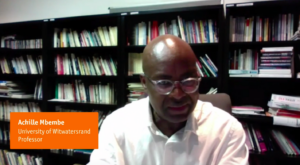The conference will take place from 11-13 September, 2023
Hosted by the Institute of Philosophy and Sociology – Bulgarian Academy of Sciences (IPS-BAS), Sofia University “St. Kliment Ohridski”, Open Society Institute – Sofia (OSIS), Trust for Social Achievement (TSA), and Sustainable Cooperation (SCOOP)
‘Vulnerability, human development and cooperative re-building in turbulent times’
We are living in turbulent times, times characterized by dynamic, deepening inequalities both between and within societies, as well as increased levels of insecurity and vulnerability. The Covid 19 pandemic, climate change, ecological disasters, famine war in Ukraine and many other conflicts around the world, have deepened these trends. The consequences are evident in human and non-human life posing multilayered obstacles to human development. Between 2020 and 2021, the human development index contracted for all countries.
Vulnerability is a feature of humanity. Martha Nussbaum notes the need for societies to acknowledge their citizens are needy and vulnerable. If vulnerability is an enduring aspect of the human condition, it needs to be addressed by individuals, collectives and institutions. The recent Covid-19 crisis demonstrated that human vulnerability is universal. But it is also shaped and experienced differently depending on economic, political and social environments.
There are no ready, easily applied and transferable answers about how individuals and societies can cope with vulnerability amidst many emerging challenges across the world. However, there are some lessons to be learned. All crises remind us how much human lives are interrelated. In order to flourish, our societies need more cooperation at all levels – local, national and global. We need a balance between striving for individual goods and the promotion of public goods. Innovations can help, but an inclusive usage of digital technologies is necessary.
Recent manifestations of human vulnerability raise questions about how the capability approach and the human development paradigm can help, in the contemporary context, in thinking through some of the questions of changing capability sets across social divisions of race, class, gender, age, disability and nationality. Applying the capability approach can encourage studying who benefits and who loses from recent societal developments. How is development as freedom as outlined by Amartya Sen, possible under these circumstances? Are there capabilities that can promote prosperity, hope and re-imagined futures in our contemporary world?




